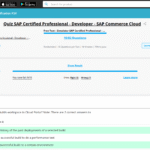Business owners create plans to sell their company when they are retiring or if they are ready to start a new venture. When setting up a business sale, the business owner must follow strict guidelines and arrive at a selling price for the business that is fair. The sale could present the buyer with enough money to retire comfortably and allow them to start a new chapter in their lives.
A business sale requires the owner to make vital decisions about their assets and any products they manufacture. For example, if they want to produce similar goods or retain ownership or a specific product, they must include the details in clauses in the sales contract.
Calculate the Value of the Company
It’s vital for the business to get an official valuation for the business and determine how much they could get by selling. The price is based on profits, the existing net worth of the business, and all assets. The business must be profitable and successful. The business owner’s financial records must show what the buyer will acquire by purchasing the company, such as their product line. Business owners can learn more about selling their business by contacting CGK Business Sales right now.
Reviewing All Business Assets
The business owner must determine what assets come with the business. The business type defines what assets they have. For example, if it is a shipping company, it will have a fleet of commercial trucks for deliveries.
A manufacturer will have equipment used to create their products, and they will have an inventory of their existing products. A valuation of their assets determines how much money the business owner could make when selling the assets. If they are going out of business, the business owner may sell the assets individually to generate more profits.
Manage Existing Debts
Existing debts must be managed by the business owner, and they must create a plan for settling the debts. Buyers do not want to purchase a company that is swimming in debt and isn’t earning enough to generate a profit. This doesn’t mean that buyers will not incur some of the debt when acquiring the company. However, the business owner will need records that show how much debt they have.
Filing Tax Returns
Business owners must manage their tax returns and pay off any tax liens before selling the business. The business must file tax returns for every year they are in operations. The business owner must have clear records of their tax filings and receipts for all tax payments. The buyer will want to know about any tax implications related to acquiring the business. They will also want to know how well the seller managed their tax returns. They will need to show the buyer the tax returns for at least the last five years.
Ensure the Business Is Profitable
When gearing up to sell the company, the business owner must create a plan to increase the profitability of the business. This could be a new product release or a new, streamlined process for generating more sales or subscriptions. The business must have incoming profits to remain operational and successful.
When a buyer purchases an existing company, they are not just purchasing the assets. They are purchasing the company’s brand, and the brand must be successful in their respective market. This is why business owners must plan ahead when preparing to sell the business, and the plan must come to fruition before placing the business on the market.
Protection for the Current Employees
A business that continues to operate after the sale requires protection for employees. When setting up the sales contract, the business owner must include clauses to protect their existing workers. The terms of the sales contract define how long the new owner must employ these workers and the terms of termination. It may also include salary requirements for the workers and prevent the buyer from decreasing the workers’ pay. If the buyer violates the terms of the sales contract, the workers are protected against wrongful termination.
Calculations for Insurance Premiums
Documents for insurance premiums paid for business-related assets or workers are a must when selling a business, too. The calculations help the buyer determine how much they will pay each month to protect their assets and workers each month. The details are vital for calculating overhead costs for the company and determining if the plans are affordable for the new owner.

Documentation of any claims filed through the insurer by the business owner helps them evaluate possible risks. Inspections of the commercial property determine if it is OSHA compliant and if the current owner has completed mitigation tasks to lower the risk of job-related accidents.
Operational Costs for the Commercial Property
Buyers will want to know how much the operational costs for the business are each month. The seller must provide records of their overhead costs and show what steps they take to control their expenses. Calculations for operational costs show the buyer what they face after acquiring the company and operating it.
When purchasing the company, the buyer will review ways to cut operational costs and save money. This could mean they will make changes when taking over. For example, if the commercial property generates higher costs, the buyer may choose to sell the physical location and purchase a new property to increase efficiency and cut costs. These examinations could show them what to expect if they buy the company.
Business owners create plans ahead of time when they are ready to sell their business. They must start with decisions such as what assets will be sold with the business, and the business owner must determine if they want to shut down the business or keep it open.
A business sale is complicated, and business owners will need help getting everything ready for the sale. A broker could help them manga vital tasks involved in a business sale. A review of all vital steps for selling a business in Victoria helps the owners finalize their plans and generate higher profits.















